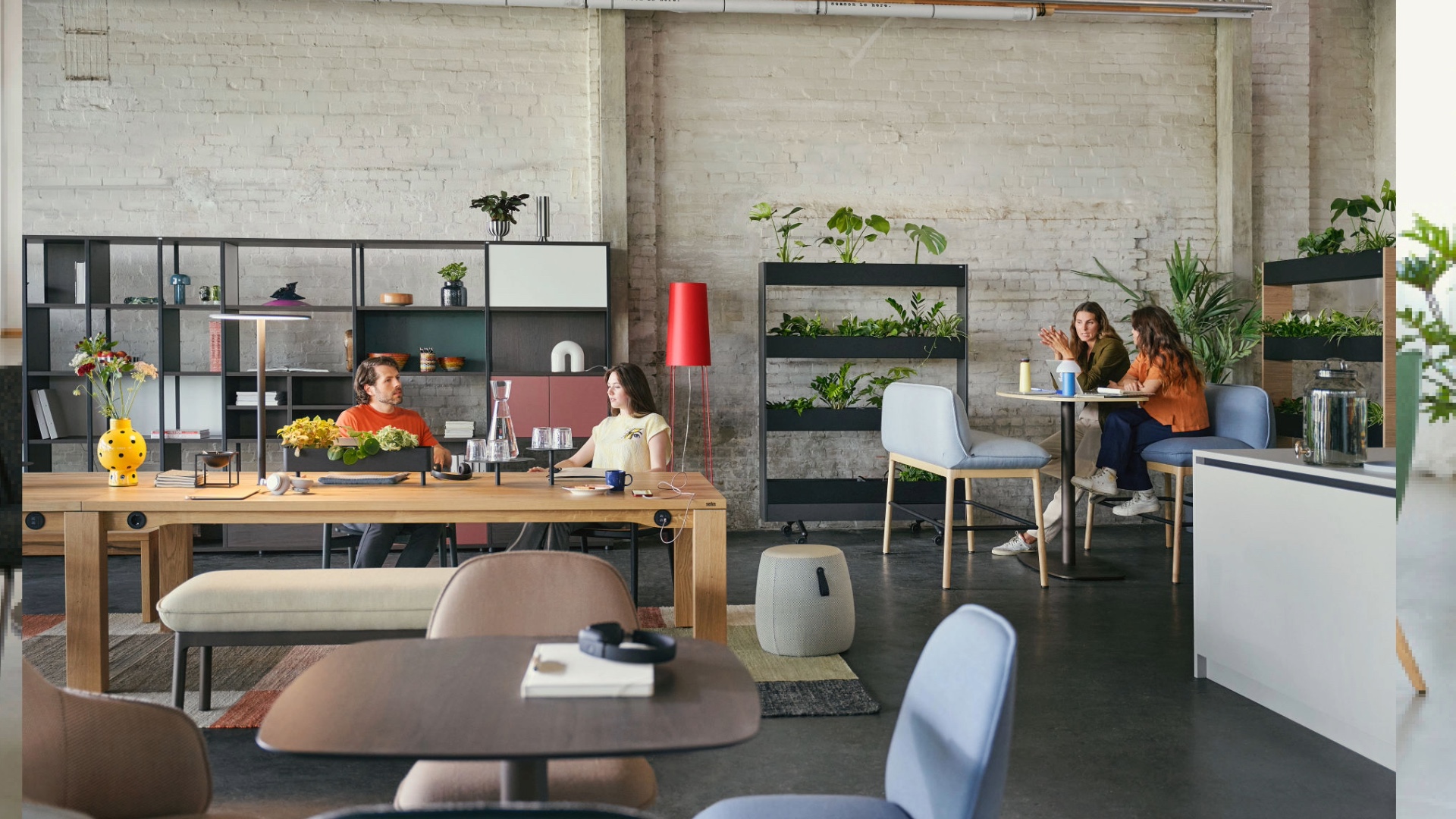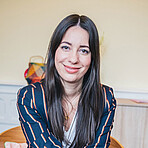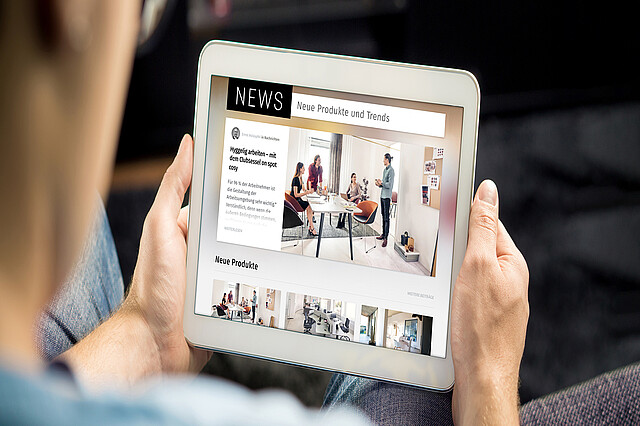Hybrid Office Design as a New Discipline
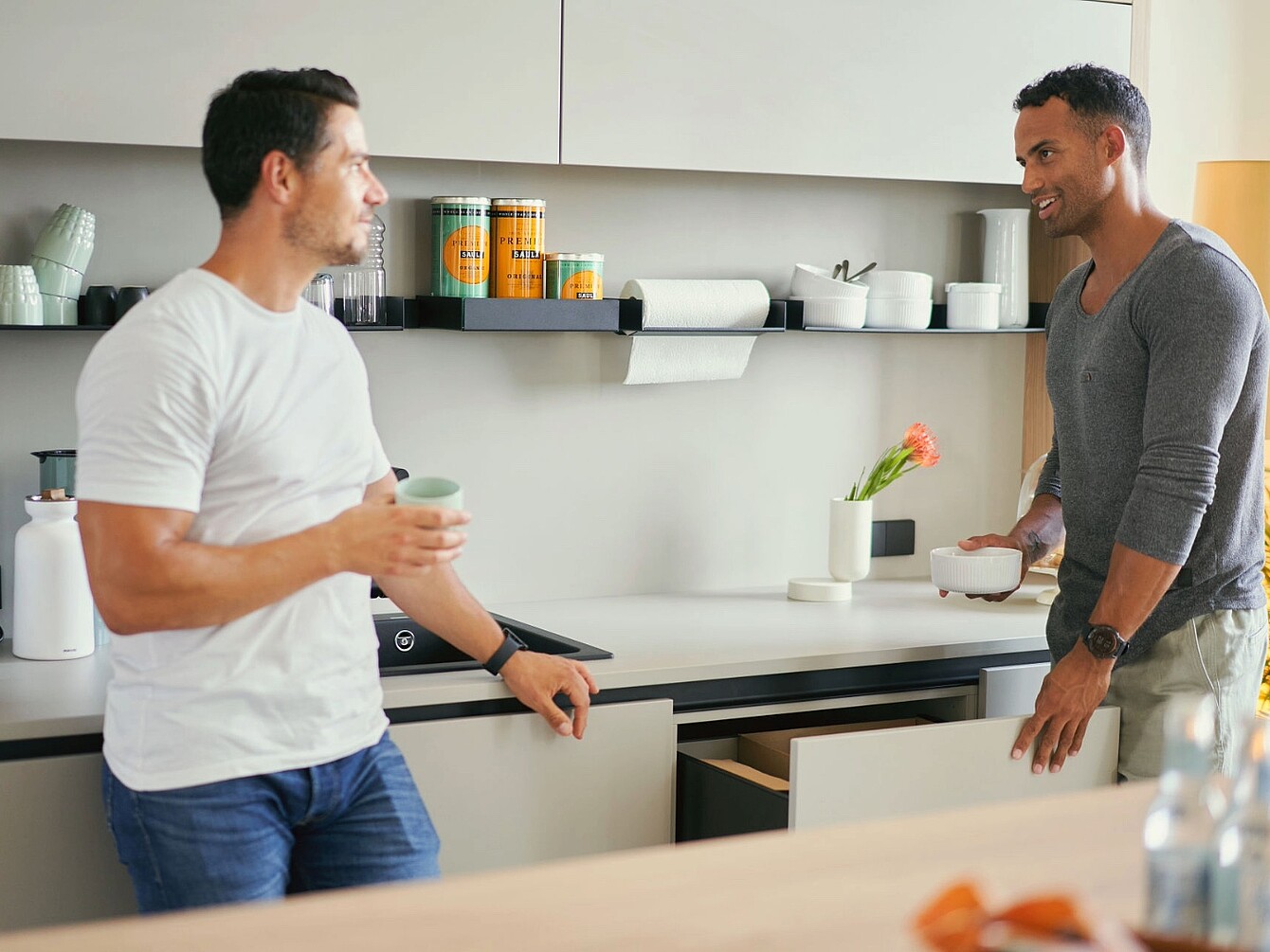
Hybrid working is now an established reality. Employees move fluidly between home offices, corporate headquarters and so-called third places – cafés, bookstores, or hotel lounges. These environments exemplify openness, atmosphere, and social connection – qualities increasingly expected of contemporary offices.
But how can these values be translated into architecture?
How can architects create hybrid office designs that place people at the centre while balancing efficiency, identity, and well-being?
The answer lies in work cafés: versatile zones where work, communication, and regeneration coexist. They are emblematic of a new office culture – flexible, vibrant, and inspiring.
From Workplace to Living Space
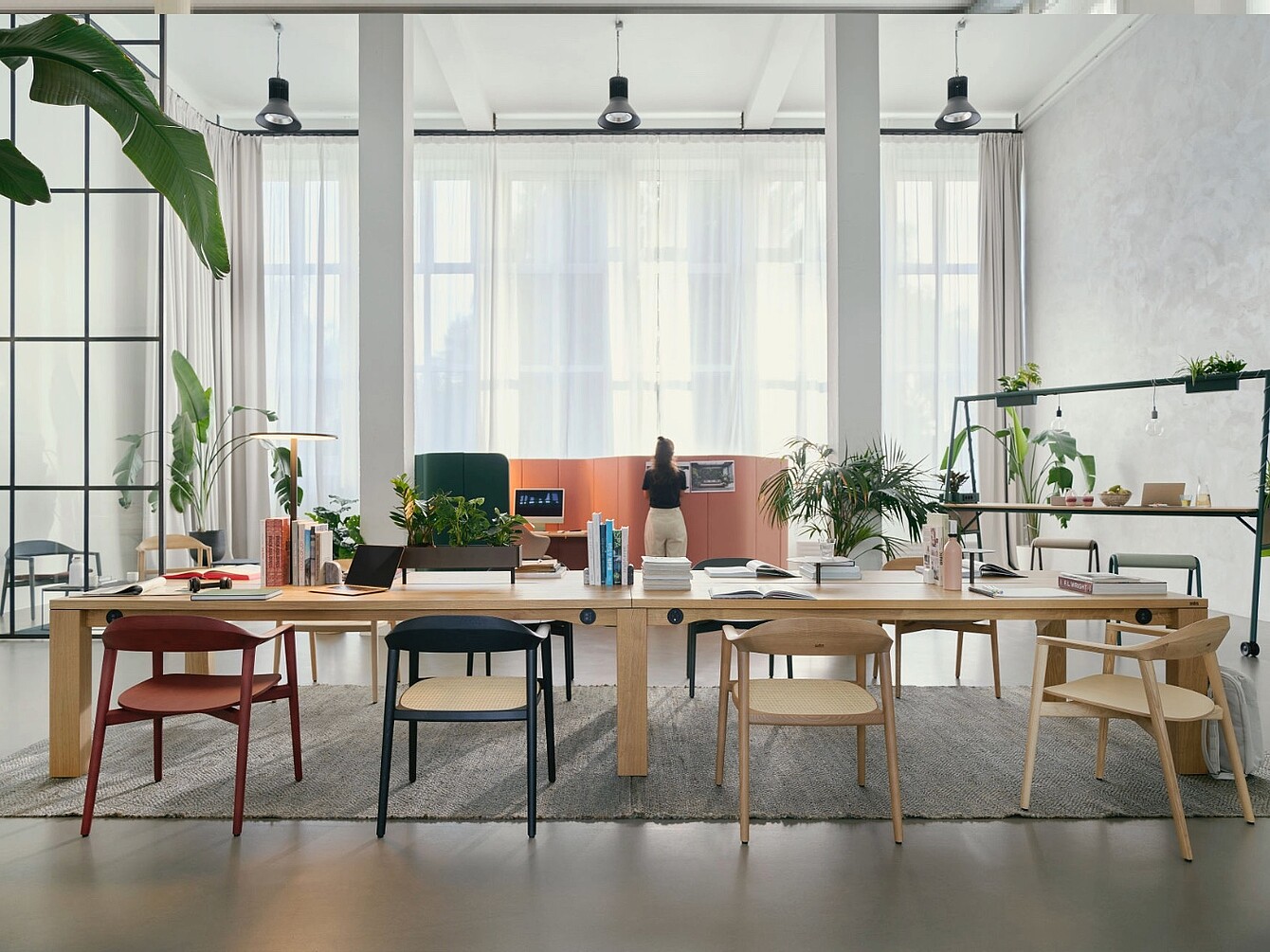
Traditional offices are giving way to open, fluid spatial arrangements. Hybrid design means work, learning, rest and social interaction are no longer strictly separated.
Work cafés are pivotal in achieving this balance: they combine structure with spontaneity, creating spaces that genuinely connect people.
Sedus offers a practical framework for this approach: four work café archetypes that serve as a foundation for planning future-ready workplaces.
Office Planning with Structure: The Four Work Café Archetypes
1. Hub – The Heart of Collaborative Energy
The Hub serves as the office’s social nucleus – open, dynamic, and energising.
Central café or bar areas, mobile furniture, and open seating arrangements encourage spontaneous interaction and foster team cohesion.
Sedus solutions such as se:works, se:lab meet, and mastermind high desk provide the infrastructure for multifunctional use, adapting seamlessly to the evolving needs of the day.
2. Club – An Elegant Lounge for Informal Encounters
The Club offers retreat within a refined setting.
Lounge seating, semi-private areas, and residential-style finishes create an atmosphere suitable for confidential discussions or focused work.
This archetype serves as a counterpoint to open-plan spaces, providing calm, quality and an environment that reflects corporate identity.
3. Library – Structured Space for Concentrated Work
The Library embodies clarity, structure and focus.
Acoustically optimised zones, minimalist design, and ergonomic workstations support deep, uninterrupted work.
Sedus supports planners with modular room-in-room systems, acoustic solutions, and height-adjustable desks that combine concentration and comfort without compromising on style.
4. Garden – A Natural Retreat for Inspiration and Regeneration
The Garden brings nature into the workplace – visually, atmospherically and emotionally.
Biophilic elements, organic forms, and natural materials create spaces for creative breaks and mental recovery.
These zones nurture well-being and encourage imaginative thinking, making every office a vibrant, living environment.
Sedus employs sustainable materials and adaptable furnishings to create flexible spaces that breathe life into any office.
Third Places as a Blueprint for Hybrid Workspaces

Cafés, bookstores, and hotel lounges have always been hubs for social exchange and collaboration.
In hybrid working, they serve as inspiration for modern office typologies. Work cafés translate these principles into the corporate context: creating socially engaging spaces that foster identity and connection.
For architects, the implication is clear: hybrid office design is a strategic challenge, not merely an aesthetic one.
Spaces must support multiple modes of work – from focused individual tasks to collaborative workshops – while reflecting the company’s culture.
Conclusion: Creating Spaces That Truly Connect
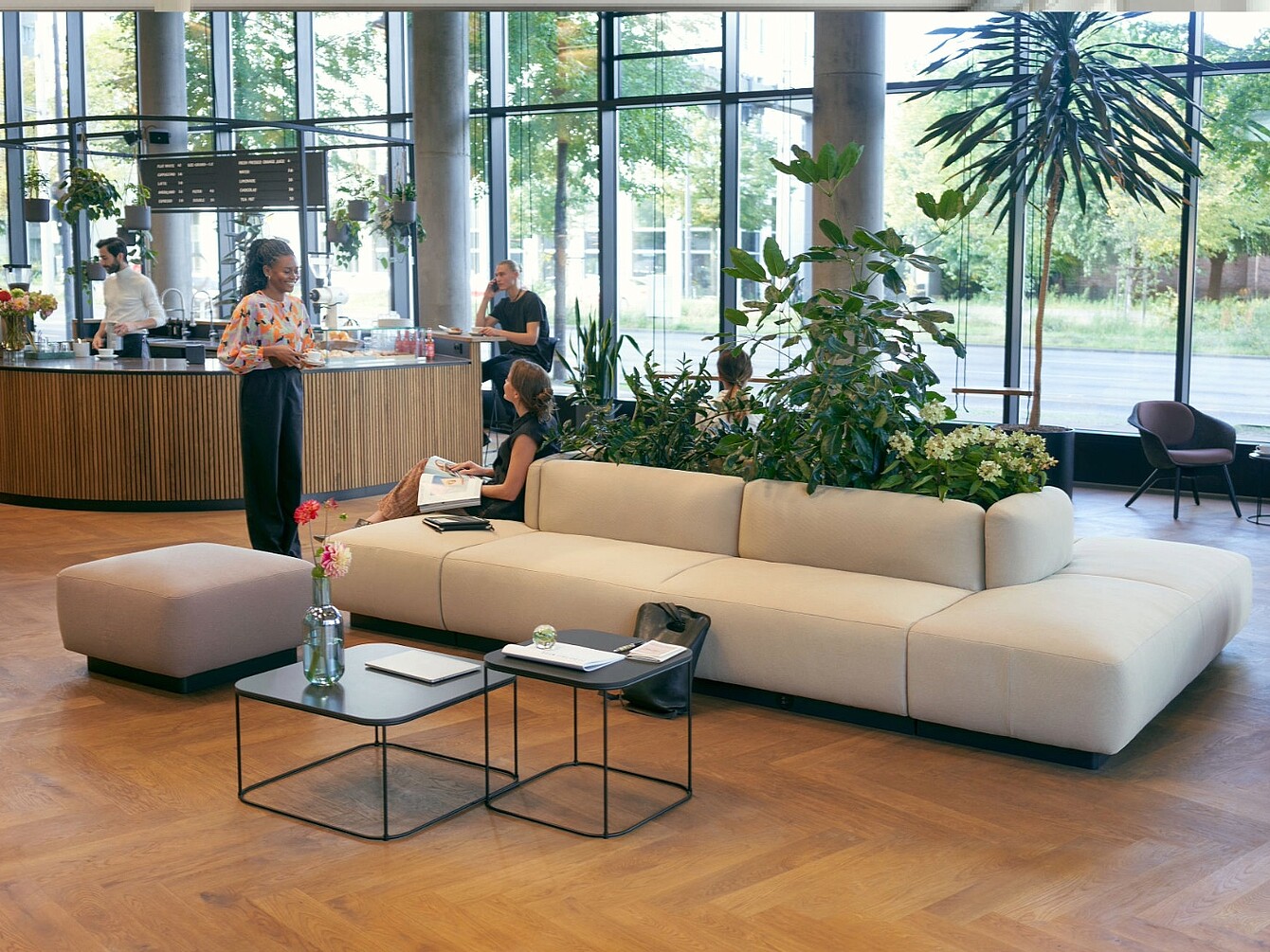
The office of the future is no longer merely a workplace; it is a living environment that inspires, motivates, and connects.
Work cafés are at the heart of this transformation, providing atmosphere, fostering creativity, and strengthening team cohesion.
With the four Sedus work café archetypes – Hub, Club, Library, and Garden – architects and planners are equipped with a practical toolkit for hybrid office design that is both functional and emotionally resonant.
Learn more:
In the Sedus brochure “Work Café & Co. – Practical Examples for Office Planning”, discover detailed planning guidance, inspiring case studies, and solutions for implementing hybrid workplaces.
Explore now and shape the office of the future
social media channels:
